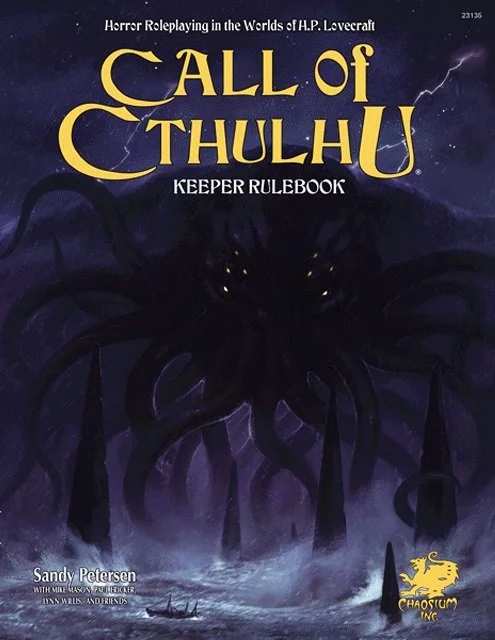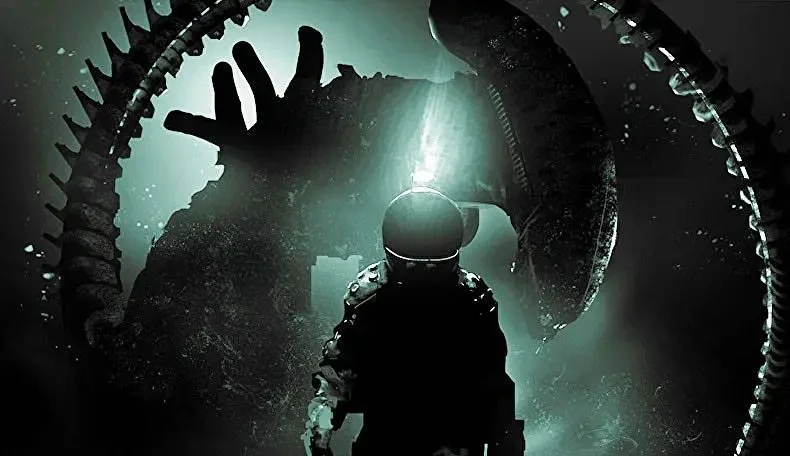Exploring TTRPG Game Systems: Finding the Perfect Fit for Your Tabletop Adventures
Tabletop role-playing games (TTRPGs) have captured the imaginations of players for decades, offering endless possibilities for collaborative storytelling and adventure. Central to the mechanics of these games are the unique game systems that govern the rules and mechanics of gameplay. In this blog post, we will delve into three popular TTRPG game systems, namely the d20 system, the d100 system, and the d6 system. The examples used are considered to be three of the most popular TTRPG games that use these systems, Dungeons and Dragons, Call of Cthulhu, and ALIEN, respectively. We will explore the strengths and weaknesses of each system, and offer suggestions on which game systems may suit different types of preferred gameplay.
The d20 System (Dungeons & Dragons):
The d20 system is the foundation of the iconic Dungeons & Dragons (D&D) game. It utilizes a 20-sided die (d20) to resolve most actions, providing a wide range of results. The system excels at offering a balanced blend of combat, exploration, and role-playing opportunities.
Strengths:
Versatility: The d20 system offers a broad spectrum of character classes, abilities, and customization options, allowing players to create diverse and unique characters.
Tactical Combat: The system places a strong emphasis on tactical combat, providing a variety of options and mechanics for engaging encounters and strategic decision-making.
Easy to Learn: The d20 system's straightforward mechanics make it accessible to new players, allowing for quick and immersive gameplay.
Weaknesses:
Imbalance: While the d20 system offers extensive character options, it is susceptible to balance issues, particularly at higher levels, where certain classes or abilities may overshadow others.
Rules Complexity: As the game expands with numerous supplements and optional rules, the d20 system can become overwhelming for players and Dungeon Masters, requiring careful management and selection of rules to maintain a smooth gameplay experience.
Suggested Gameplay Preference: The d20 system is well-suited for a balanced mix of combat, exploration, and role-playing. It appeals to players who enjoy tactical combat encounters and a diverse range of character options.
The d100 System (Call of Cthulhu):
The d100 system, prominently featured in Call of Cthulhu, is a percentile-based game system that utilizes two ten-sided dice (2d10) to determine outcomes. Known for its Lovecraftian horror setting, the system excels at evoking a sense of dread and challenging investigative gameplay.
Strengths:
Atmosphere and Horror: The d100 system, combined with Call of Cthulhu's unique setting, is highly effective at creating an immersive and atmospheric horror experience. It focuses on investigation, uncovering dark secrets, and confronting eldritch horrors.
Realism and Versatility: The percentile-based mechanics allow for a broad range of actions, providing a level of realism and flexibility to the gameplay.
Skill-Based Progression: Characters in Call of Cthulhu improve their skills through experience, emphasizing character development and specialization.
Weaknesses:
Combat Balance: The d100 system tends to be less combat-focused, with combat encounters often resulting in quick and deadly outcomes. Players seeking extensive tactical combat mechanics might find this system lacking in that regard.
Steep Learning Curve: The percentile-based mechanics and investigative gameplay can be initially daunting for newcomers to TTRPGs, requiring patience and commitment to learn the intricacies of the system.
Suggested Gameplay Preference: The d100 system is ideal for players who enjoy atmospheric horror, investigative gameplay, and character-driven narratives. It is recommended for those seeking a focus on unraveling mysteries and delving into Lovecraftian lore.
The d6 System (ALIEN):
The d6 system, as seen in the ALIEN role-playing game, revolves around six-sided dice (d6) and embraces a cinematic and suspenseful experience set in the sci-fi universe of the ALIEN franchise. It emphasizes survival horror, tension-filled encounters, and the relentless pursuit of the iconic xenomorphs.
Strengths:
Tension and Suspense: The d6 system is designed to create an intense and suspenseful gameplay experience, mimicking the feel of the ALIEN movies. It focuses on resource management, survival, and the constant threat of the alien menace.
Streamlined Mechanics: The system's simplicity allows for quick and fluid gameplay, minimizing rules complexity and maximizing immersion.
Cinematic Action: The d6 system incorporates cinematic mechanics, such as Panic Rolls, that add narrative flair and replicate the high-stakes action sequences of the ALIEN franchise.
Weaknesses:
Limited Character Options: The d6 system in ALIEN offers fewer character options and customization compared to other game systems, potentially limiting long-term character development.
Niche Setting: As a game system tied closely to the ALIEN universe, it may be less versatile for players seeking a broader range of settings and themes.
Suggested Gameplay Preference: The d6 system in ALIEN is perfect for players who relish survival horror, suspenseful gameplay, and cinematic action. It is well-suited for shorter campaigns or one-shots, especially for those who wish to immerse themselves in the iconic ALIEN universe.
Remember, the system you choose is just the beginning—the true magic lies in the stories you and your fellow players weave together.
The world of TTRPGs offers a multitude of game systems, each with its own strengths and weaknesses. By understanding the unique mechanics and focus of systems such as the d20 system in D&D, the d100 system in Call of Cthulhu, and the d6 system in ALIEN, players can select the system that aligns with their preferred gameplay styles. Whether you seek a balance of combat and role-playing, atmospheric horror, or cinematic suspense, exploring these game systems will pave the way for unforgettable tabletop adventures tailored to your tastes. Remember, the system you choose is just the beginning—the true magic lies in the stories you and your fellow players weave together.
What has been YOUR experience with different game systems? Do you have a preference? Know of any less-explored game systems? Share with us in the comments!
Learn more about Call of Cthulhu and how it stacks against Dungeons and Dragons by checking out 4 Basic Differences Between DnD and Call of Cthulhu
Thank you for stopping by the Inn at the End, don’t forget to subscribe to this blog and, if you’re into podcasts, be sure to check out Inn at the End on your favorite podcast app.
Grab your sword and keep on adventuring!
-The Inn Keeper-
Enjoy this content? Become an INN-habitant and never miss a communication from the Inn Keeper by following us. We will never misuse or sell your information.


